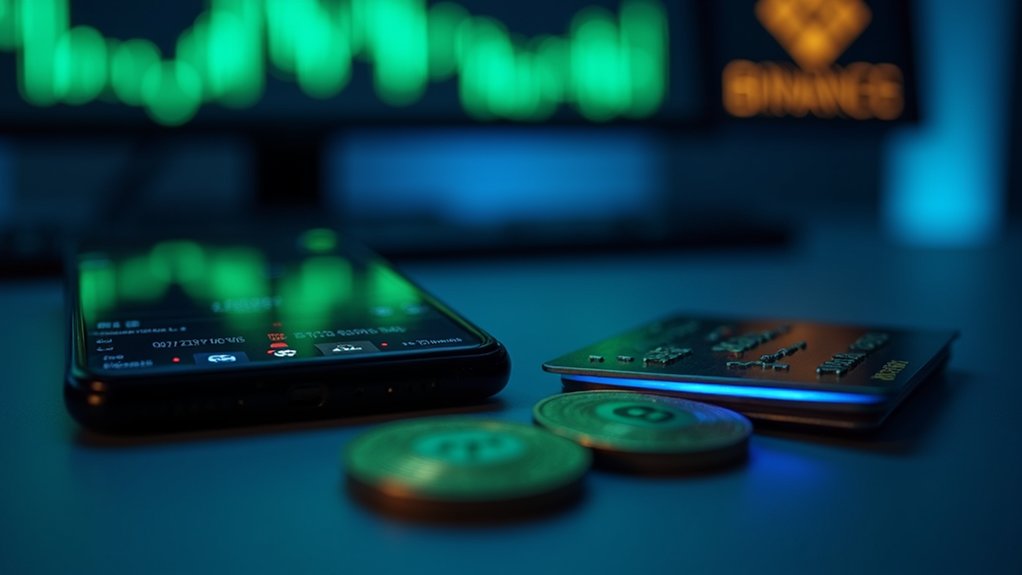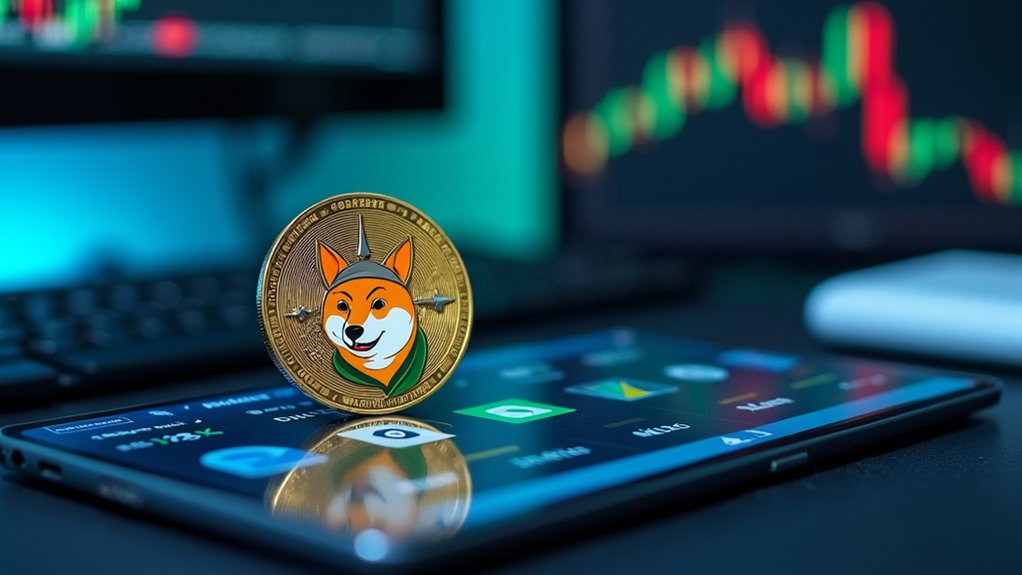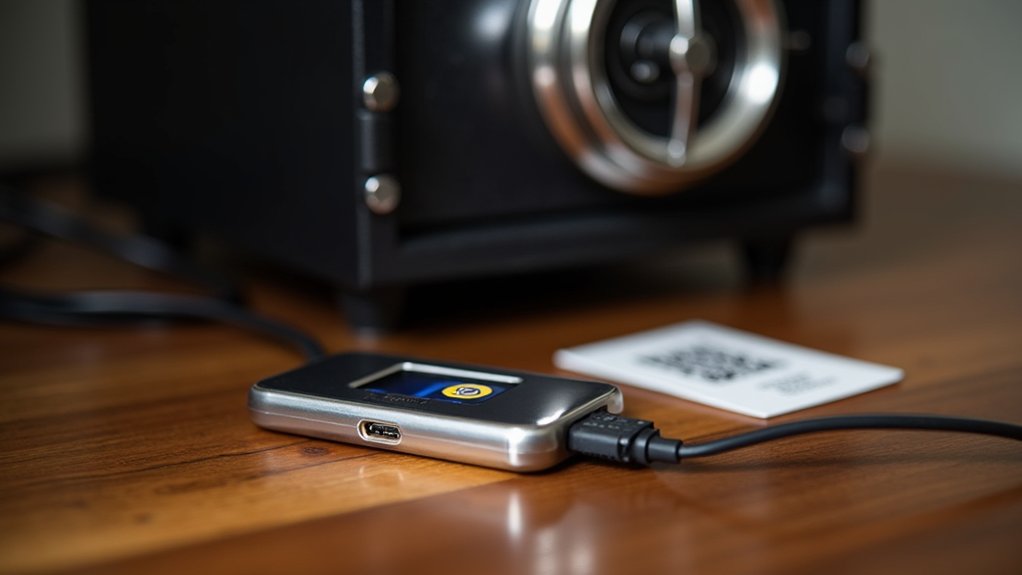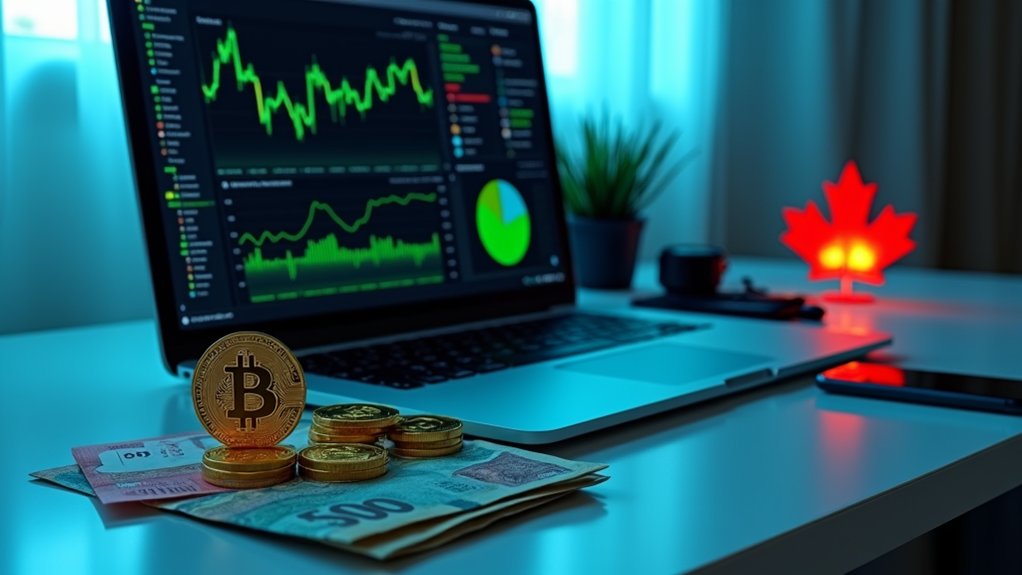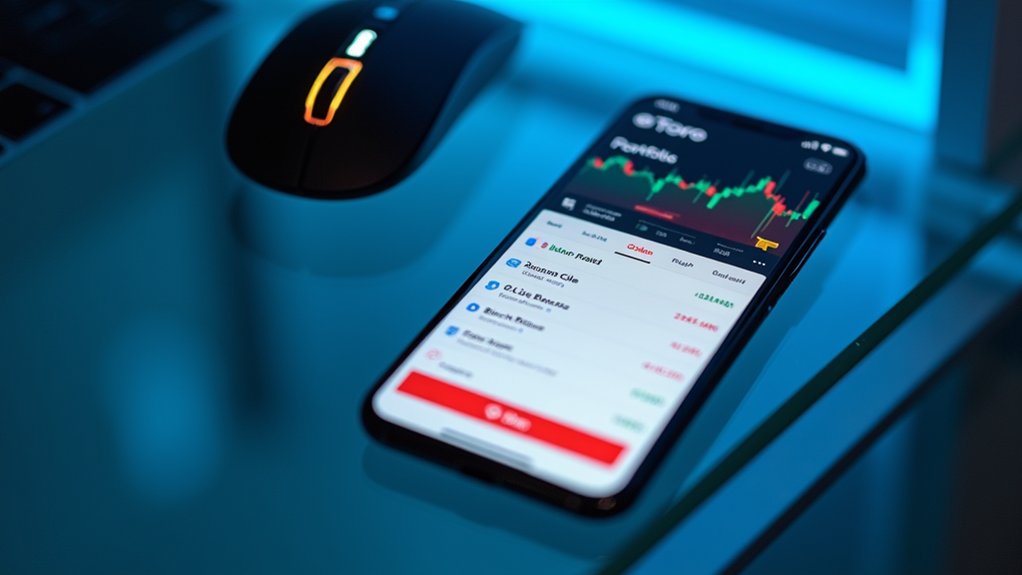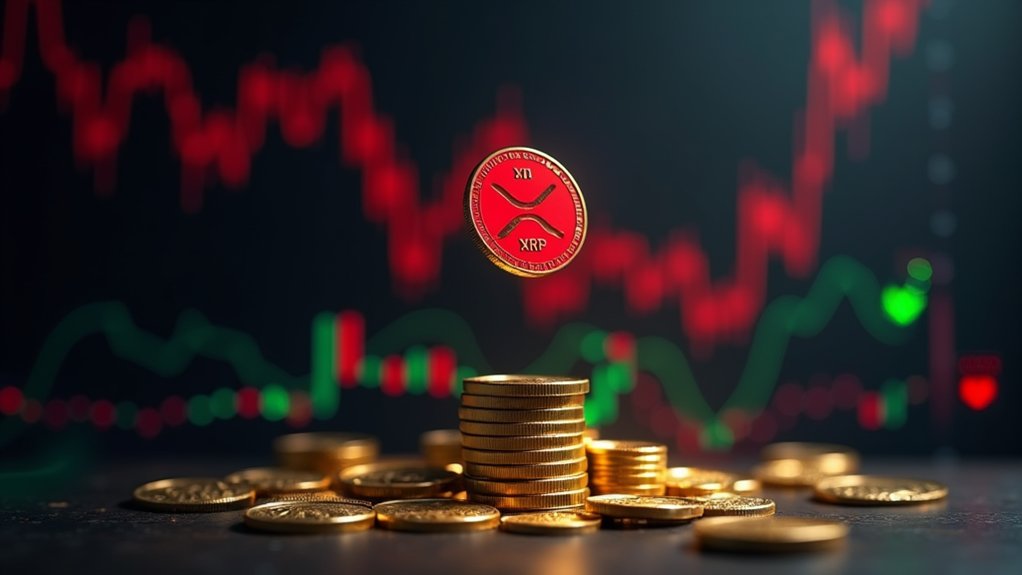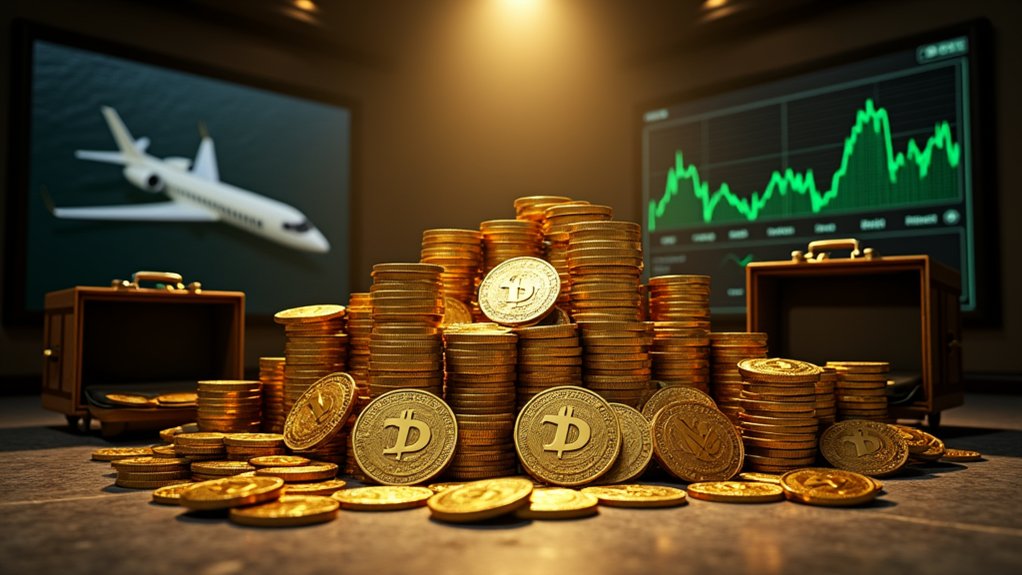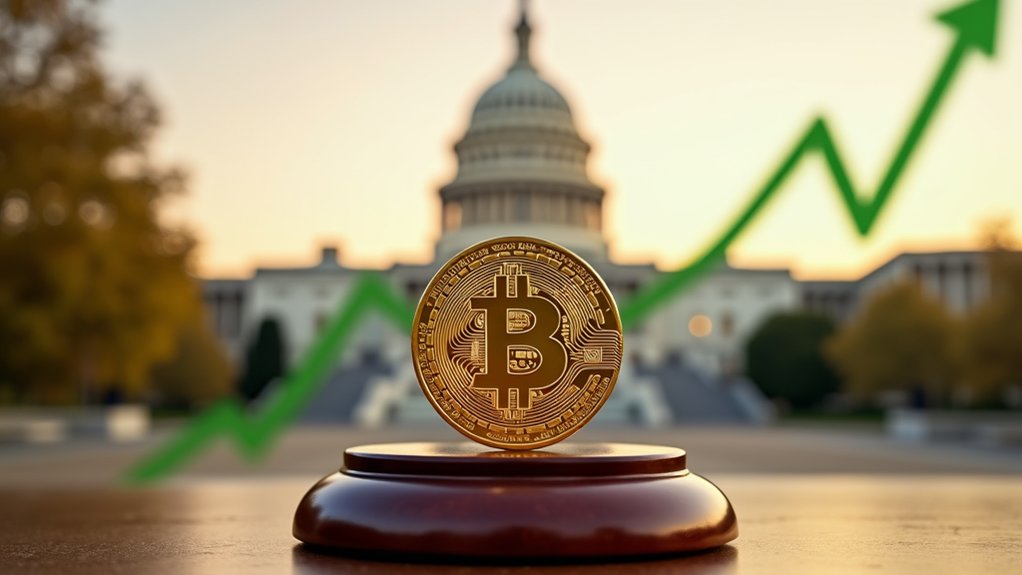Investors can purchase EverGrow Coin (EGC) through centralized exchanges like Binance or Bitrue, where it trades against BNB, USDT, or BTC. Alternatively, decentralized platforms like PancakeSwap offer non-custodial trading options requiring a compatible Web3 wallet. Direct purchase methods include services like Atlas Wallet and Kriptomat, which accept credit cards, debit cards, and bank transfers. After acquisition, transferring tokens to a personal wallet enhances security through private key control. The following sections explore each acquisition method in thorough detail.
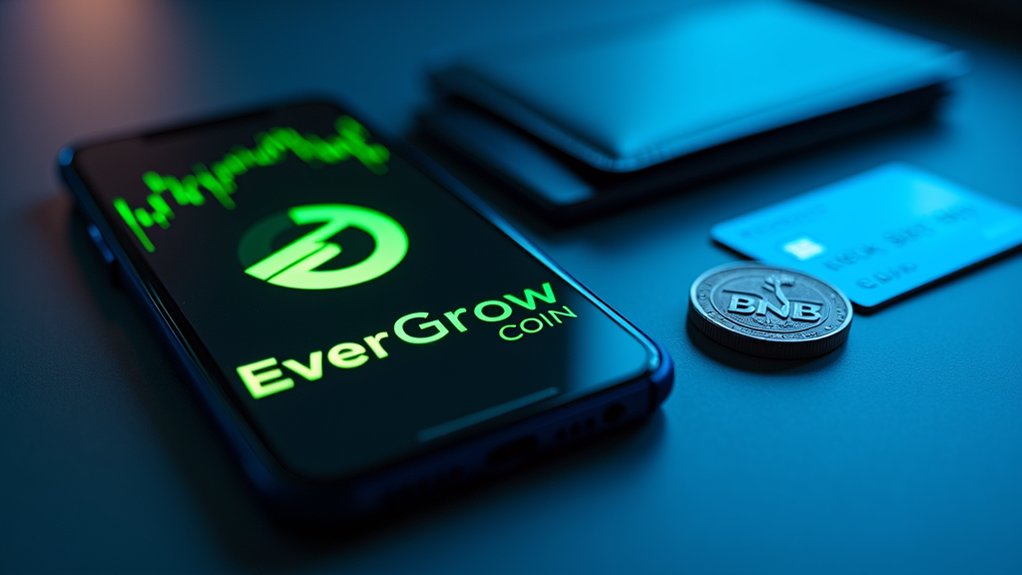
Since cryptocurrency investments continue to diversify beyond mainstream tokens, EverGrow Coin (EGC) has emerged as a notable option for investors seeking potential growth opportunities in the decentralized finance sector. Acquisition methods for this digital asset vary in complexity and security considerations, with centralized exchanges (CEXs) representing the most accessible entry point for newcomers to the cryptocurrency space.
Diversifying beyond Bitcoin and Ethereum, EGC offers promising DeFi exposure with accessible entry points for crypto newcomers.
Established platforms like Binance, Bitrue, and Kriptomat offer direct EGC trading pairs, though investors may initially need to purchase base currencies like BNB, USDT, or BTC when specific pairings are unavailable, ultimately converting these intermediary assets to EGC through internal exchange mechanisms.
For users preferring greater control over their digital assets, decentralized exchanges (DEXs) present a non-custodial alternative that eliminates third-party involvement in transactions. Platforms built on Binance Smart Chain or Ethereum, including PancakeSwap and Uniswap respectively, facilitate peer-to-peer EGC acquisitions through smart contracts, requiring users to connect compatible wallets like Trust Wallet after funding them with appropriate network tokens to cover both the purchase and associated gas fees. EGC operates on the Binance Smart Chain, which provides enhanced transaction efficiency with quicker block speeds and lower gas costs than some other networks.
Contract address verification remains paramount when executing DEX transactions to mitigate the risk of interacting with fraudulent tokens designed to mimic legitimate assets.
Direct purchase options have expanded considerably, with services like Atlas Wallet, Kriptomat, and Bitrue now supporting fiat onramps through credit cards, debit cards, and bank transfers in select regions. These streamlined approaches reduce the technical barriers traditionally associated with cryptocurrency acquisition, though transaction fees typically exceed those of exchange-based methods. Atlas Wallet stands out by offering a user-friendly experience where investors can download the application and purchase EverGrow without providing private information.
The incorporation of Web3 wallet functionality further simplifies the process by eliminating intermediate transfers between centralized platforms and self-custody solutions.
Security practices should not be overlooked regardless of the chosen acquisition method, with institutional-grade protection offered by reputable exchanges contrasting with the complete self-sovereignty of non-custodial wallets. For optimal protection, consider transferring your purchased EGC to a personal wallet rather than leaving it on an exchange.
Strategic distribution of holdings across multiple storage solutions, implementation of two-factor authentication where available, and meticulous protection of private keys represent fundamental precautions for EGC investors seeking to safeguard their digital assets against unauthorized access or exchange vulnerabilities.
Frequently Asked Questions
What Are the Tax Implications of Investing in Evergrow?
Investing in EverGrow involves distinct tax consequences across trading environments.
CEX transactions incur no transaction taxes, while DEX transfers trigger an 8% tax.
Rewards distributed to wallet holders are taxable as ordinary income, requiring declaration on Form 1040.
The 8% tax on transfers increases the token's cost basis, affecting capital gains calculations.
Investors must meticulously track all transactions, since double taxation risks exist when moving tokens between platforms after receiving rewards.
Can Evergrow Be Stored in Hardware Wallets?
Evergrow Coin can indeed be stored in hardware wallets, providing enhanced security through offline storage mechanisms.
Compatible devices include Ledger and Trezor models, which support Binance Smart Chain tokens. Users must verify their hardware wallet is properly configured to interact with BSC, requiring the appropriate application installation and network settings.
For maximum security implementation, investors should maintain their private keys confidentially while creating offline backups of seed phrases in secure, tamper-proof locations.
How Does Evergrow Compare to Other Reflection Tokens?
EverGrow differentiates itself from other reflection tokens through its BUSD-denominated rewards, which offer stable value compared to native token distributions used by SafeMoon and BabyFloki.
While EGC's 14% transaction tax falls within the competitive range (SafeMoon: 10%, FlyPaper: 15%), its allocation structure emphasizes sustainability through significant liquidity pool provisions and automated buyback mechanisms.
However, EGC shares the volume-dependency vulnerability common to reflection tokens, with rewards diminishing substantially during periods of low trading activity.
What Happens to Evergrow Rewards During Market Downturns?
During market downturns, EverGrow rewards remain fundamentally unaffected by price fluctuations, since they derive from the 8% transaction tax rather than token value.
Increased trading activity during volatile periods can actually enhance rewards distribution among remaining holders.
Additionally, when investors move tokens to centralized exchanges for selling, this concentrates the reward pool among fewer wallet-based holders, potentially increasing individual BUSD reflections despite declining market conditions.
Is There a Minimum Amount Required to Earn Reflections?
EverGrow's tokenomics structure does not impose a minimum holding requirement to qualify for BUSD reflections, since the distribution mechanism allocates rewards proportionally based on one's percentage of the total circulating supply.
While larger holders naturally receive more substantial rewards due to their greater stake in the ecosystem, even minimal holdings will generate reflections; however, transaction fees and gas costs may effectively create a practical threshold where extremely small positions yield negligible returns after costs.
